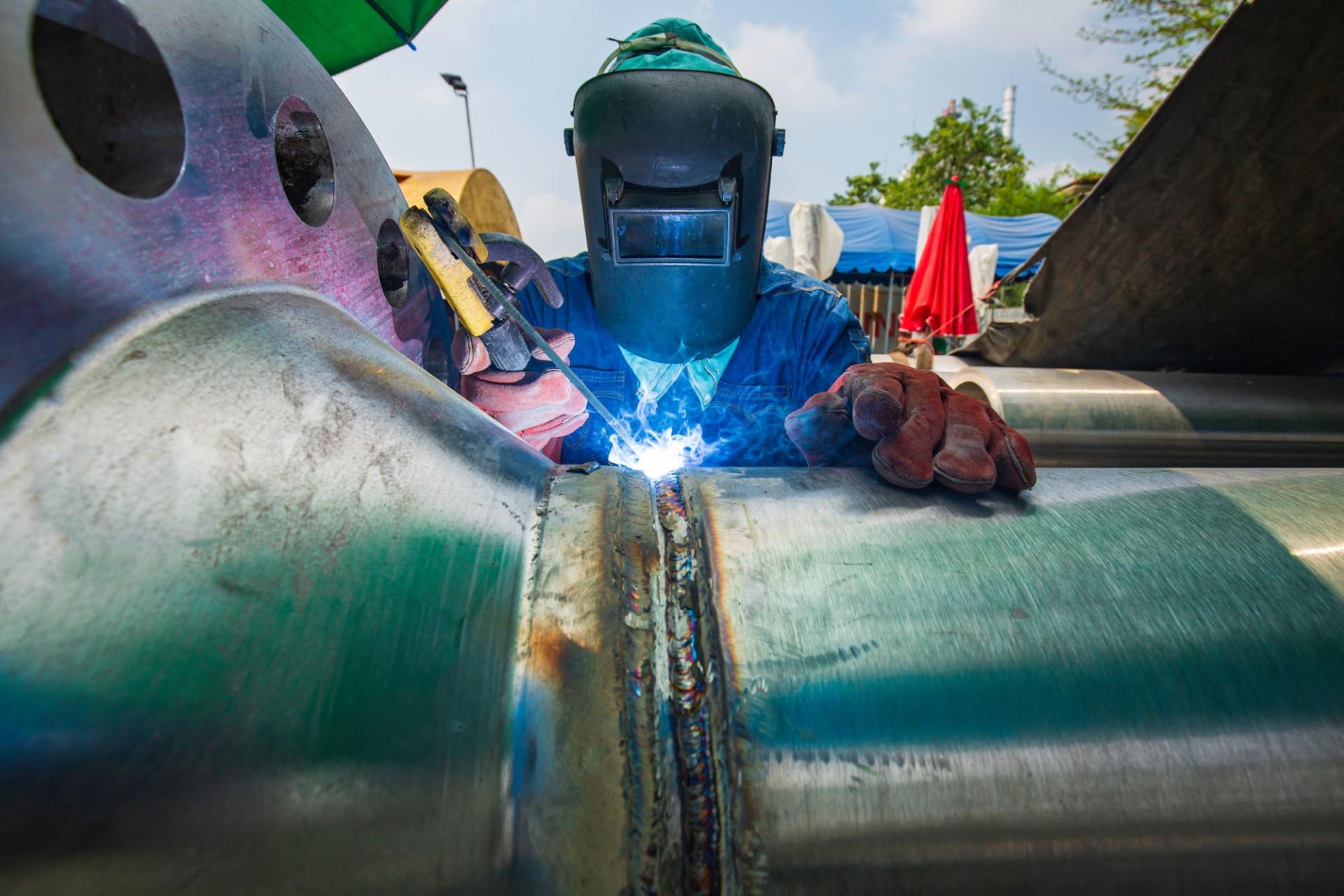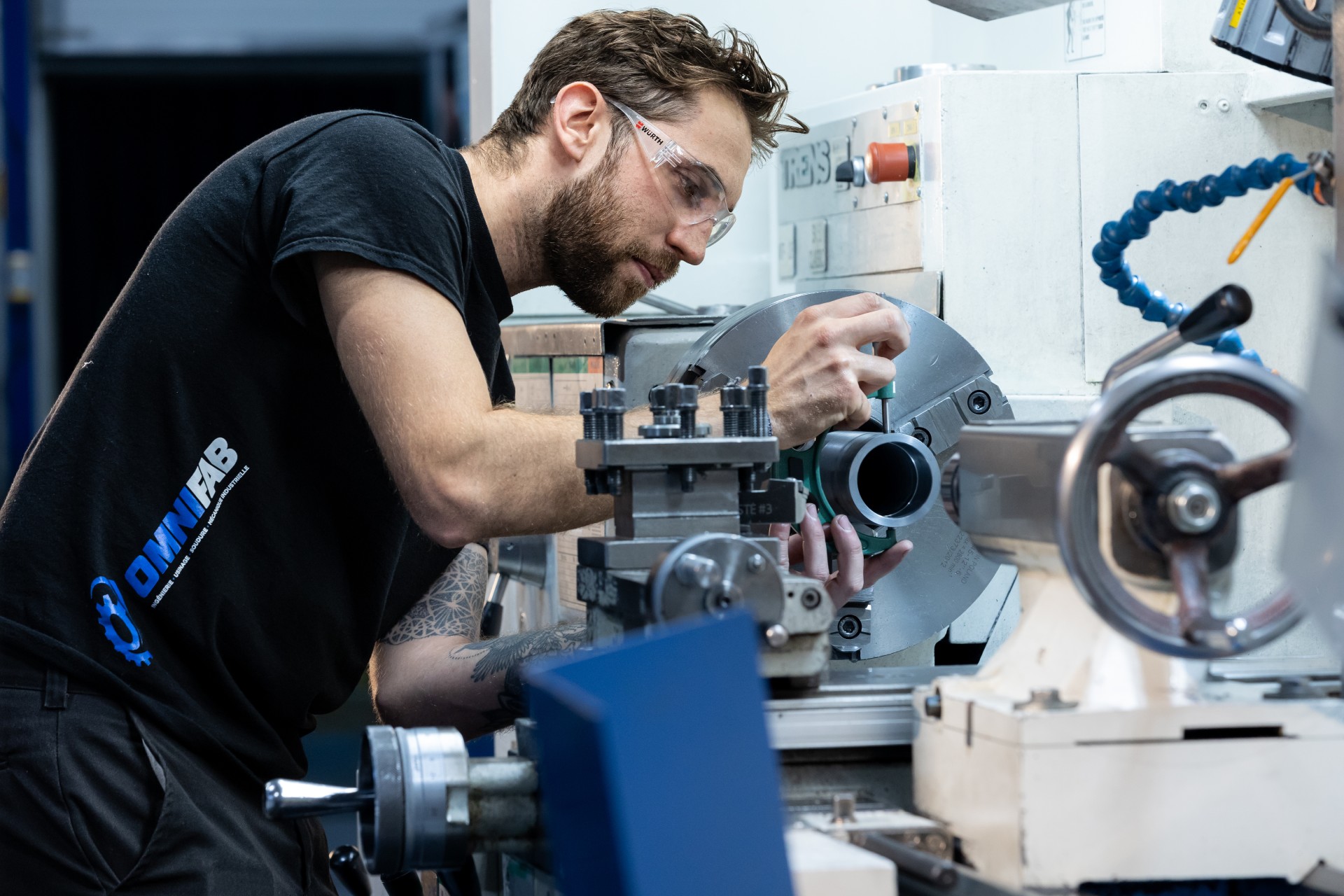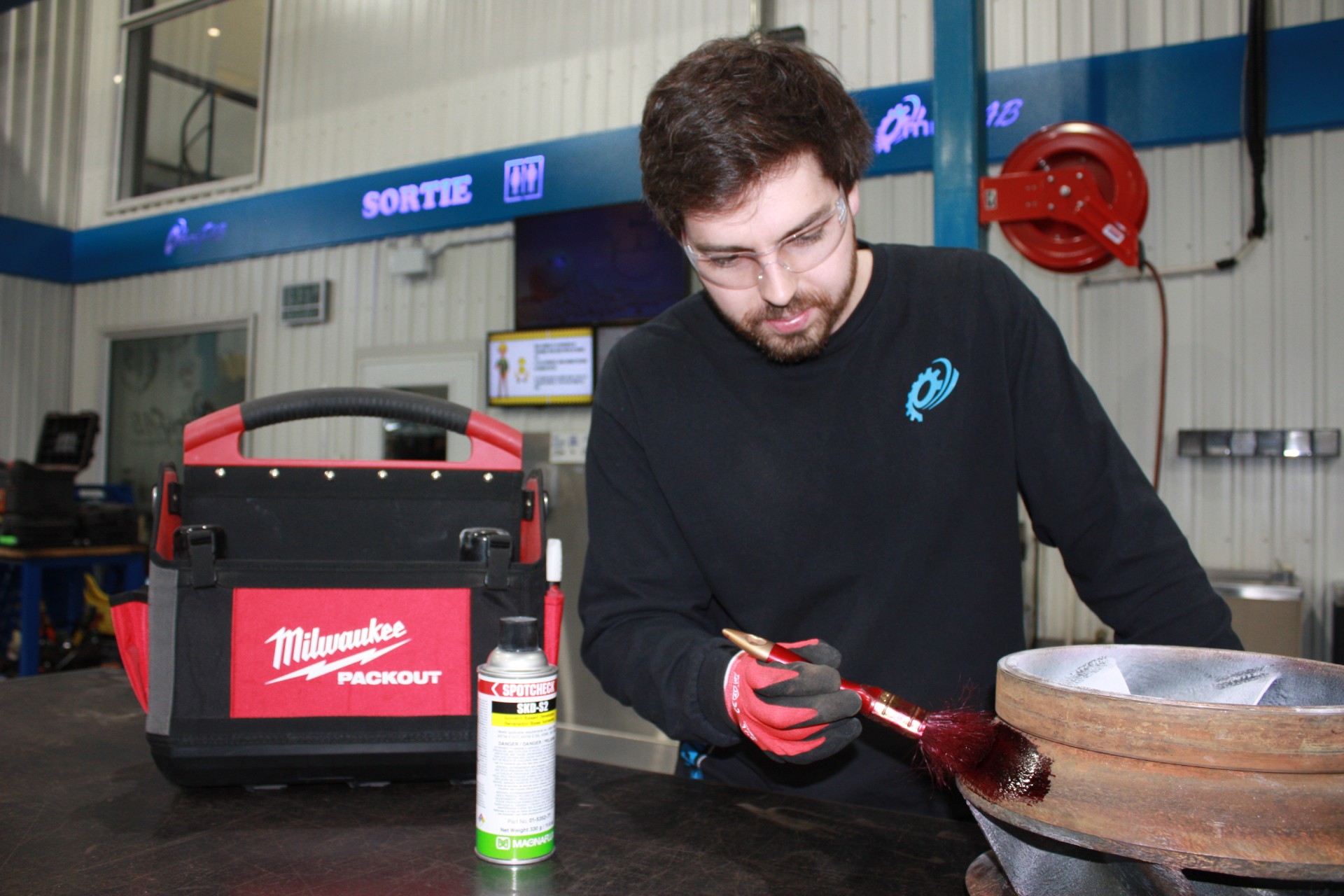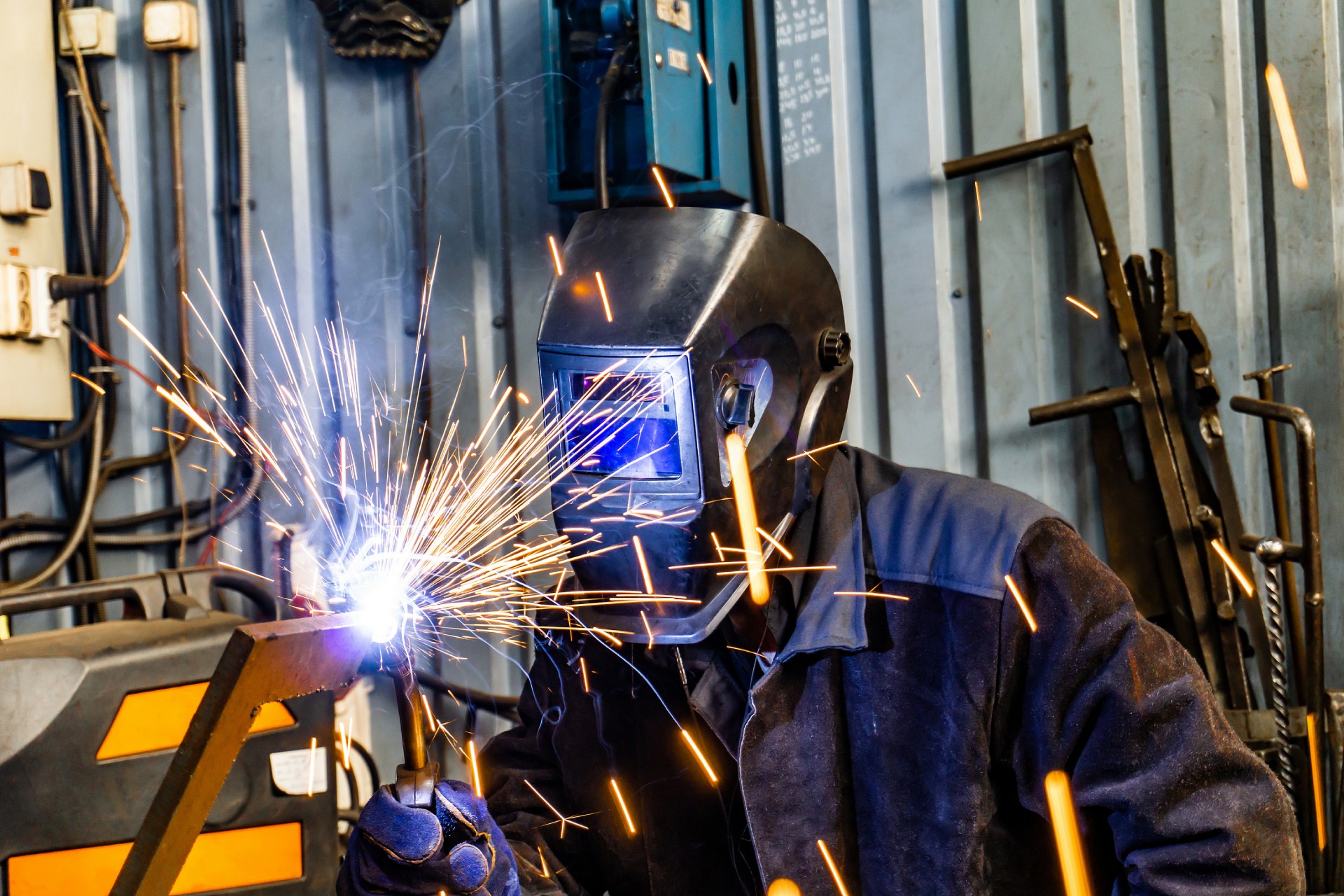At Omnifab, our skilled welders excel in performing various types of welding, thanks in large part to their meticulous use of the appropriate welding gases. This expertise allows them to tailor welding services to meet the specific needs and requirements of industrial clients.
In this article, we will explain the role of gases in welding, introduce the different types of welding gases, and provide tips to help you choose the right gas for the task at hand.
What Is the Purpose of Gases in Welding?
First and foremost, it’s important to note that at Omnifab, we primarily use what are known as “shielding gases” in our industrial welding processes.
During TIG, MIG, MAG, and plasma welding, the main role of the shielding gas is to protect the weld pool, which refers to the molten zone of the base and filler materials during welding. The shielding gas ensures the highest possible quality in our welding operations.
The gas impacts the weld’s external appearance, the amount of spatter, the penetration depth of the weld bead, protection against ambient air, and the absence of welding defects.
Without shielding gas, the weld would be porous, mechanically weak, and prone to corrosion.
The shielding gas influences not only the quality of the weld but also the productivity of the operations and the working conditions of the welders.
What Are the Different Types of Welding Gases?
As mentioned earlier, we primarily use shielding gases in our welding shop and during mobile welding operations. However, this broad category encompasses several types of gases.
1. Inert Gases
These gases are called “inert” because they do not chemically react with molten metals during the welding process.
- Argon – Ar: Suitable for all metals. Low ionization potential. Easy arc initiation.
- Nitrogen – N: Mainly used as a protective gas for austenitic stainless steels. Degrades the mechanical properties of ferritic steels.
- Helium – He: High cost. Produces a very energetic arc. Enhances penetration and wetting. Increases arc welding
2. Reducing Gases
These gases, also known as active shielding gases, chemically react with molten metals to prevent oxidation and contamination of the weld.
- Hydrogen – H₂: When combined with Argon, it creates a more energetic arc and reduces oxides. Enhances performance, producing a shiny and aesthetically pleasing weld bead. Highly flammable.
3. Oxidizing Gases
As the name suggests, these gases promote oxidation of the molten metals during the welding process.
- Oxygen – O₂: When mixed with Argon, it stabilizes the arc, promotes axial spray transfer, and improves wetting. Primarily used for flat welding. Risk of sticking and root porosity.
- Carbon Dioxide – CO₂: Used pure or in a mixture. Stabilizes the arc, increases weld pool viscosity, and improves compactness. Provides broader penetration. Impairs alertness and breathing at concentrations above 2%.
.
How to Choose the Right Welding Gas?
When performing welding tasks, several factors must be considered to select the appropriate gas.
MIG Welding
For MIG welding (Metal Inert Gas), the most commonly used inert gases to shield the droplet transfer from the filler wire and the weld pool are argon (75%) and CO₂ (25%).
MAG Welding
MAG welding (Metal Active Gas), on the other hand, requires consideration of several aspects:
- Filler material
- Thickness of the material to be welded
- Joint geometry
- Type of transfer
- Welding position
- Condition of the material to be welded
- Type of penetration
- Desired appearance of the weld bead
- Budget constraints
Entrust Your Welding Projects to Our Experts
It’s Time to Get to Work
After reading this article, you’ve likely realized how complex welding can be, including the critical choice of welding gases for large-scale projects.
At Omnifab, our certified welders guarantee strong, durable, and visually appealing welds, whether performed at our facility or on-site with our mobile welding unit.
Contact our experts today to benefit from turnkey welding solutions tailored to your specific needs.






